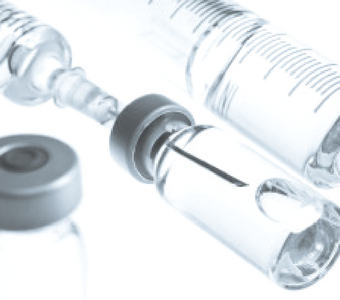Acadia Pharmaceuticals (NASDAQ:ACAD) announced on Wednesday morning a private equity financing to sell 19 million shares of common stock at $4.43 per share, plus warrants to purchase 500,000 shares at $0.01. The company expects gross proceeds of $86.4M, a necessary addition to the company’s approximate $30M in cash and equivalents (including At-the-Market sales in November totaling $10.7M). Shares reacted favorably to the offering, up 12% just after the open on Wednesday, as investors largely expected a financing following pimavanserin’s Phase III success in patients with Parkinson’s disease psychosis (read more here). We expect Acadia is seeking a commercial partner ahead of label expansion trials and a confirmatory Phase III study for pimavanserin in PDP. Large pharmaceutical partners will be looking for a solid balance sheet ahead of a partnership, and Wednesday’s capital raise is likely a precursor to in-depth collaboration discussions. With pressure from the impending financing off the shares, Acadia should begin to work higher in the near-term, and could gain substantially on a collaboration announcement.
While a press release on Wednesday announced the capital raise, the company’s subsequent 8-K proved more revealing of some regulatory mistakes at Acadia. The company has had an At-The-Market (ATM) Issuance Sales Agreement in place since March of 2012, allowing the sale of up to $20M in common stock at prevailing market prices. The company exercised this sales arrangement during the second half of 2012, but revealed on Wednesday that, “due to an oversight, ACADIA did not timely file a Current Report on Form 8-K reporting [the election of Mr. Wells to Acadia’s Board of Directors]” and “on March 6, 2012, ACADIA became ineligible to use its effective shelf registration statement.” All ATM sales, then, could be deemed unregistered sales of securities, and direct purchasers of the common stock through the ATM may have rescission (refund) rights.
Acadia sold 3.5M shares from August 13 to September 19 at prices ranging from $1.64 to $2.29 per share; these investors have since recorded substantial returns. More importantly, however, Acadia sold 1.85M shares on November 27 at an average price of $5.74, the same day that pivotal Ph. 3 pimavanserin results were released and shares gapped up nearly 200% to 6.50. At the time, buyers expected they were getting a steal on a stock that was set to run higher, but since the 27th, shares have traded off 25% to $4.50. That means those once-thrilled buyers – at least those who didn’t sell immediately – are now underwater, and today’s rescission news offers them an easy way out. Acadia could be on the hook for $10.7M in refunds if all 1.85M shares (unlikely) are returned to the company. That’s roughly a 10% slice of Acadia’s cash and equivalents following Wednesday’s capital raise – notable but not disastrous.
The news ultimately means little for most ACAD shareholders. Acadia may face penalties or fines from regulators, but the SEC will likely require nothing more than a financial slap on the wrist. And the rescissions may, in fact, be a slight positive for ACAD investors – refund expenses aside – as the number of outstanding shares could be reduced by nearly 2 million. We expect the same investors seeking a refund will turn around and buy shares on the open market, generating demand for the stock. The company does not expect to regain S-3 eligibility until February 28, 2013. ACAD has been under pressure since the end of November in expectation of a financing, and with that off of the table, shares should begin to climb. Our previous report suggested a fair valuation for ACAD at approximately $6 per share, a 20% premium to today’s price. And although the company is still far from commercializing pimavanserin, it will likely announce a partnership next year in advance of pimavanserin’s confirmatory -021 Study; that announcement would be a major catalyst for ACAD.



